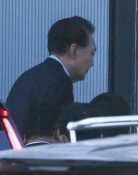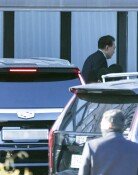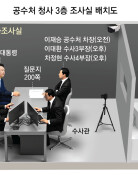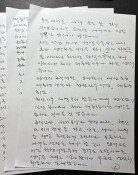Prosecutors assert Yoon’s actions constitute insurrection
Prosecutors assert Yoon’s actions constitute insurrection
Posted December. 28, 2024 07:26,
Updated December. 28, 2024 07:26
A prosecutorial investigation has revealed shocking details about President Yoon Suk Yeol's actions during the declaration of emergency martial law on December 3. According to the indictment against former Defense Minister Kim Yong-hyun, Yoon gave direct orders to officers in command to use violence to suppress the National Assembly, including breaking in with firearms and axes if necessary. Despite the passage of a motion to lift martial law, Yoon reportedly told Commander Lee, “Even if the martial law is lifted, I can declare it again, twice or thrice, so proceed.”
The indictment paints a picture of a meticulously orchestrated plan by Yoon to paralyze the National Assembly and prevent the lifting of martial law at any cost. Earlier the same day, Yoon reportedly met with Cho Ji-ho, National Police Agency Commissioner, and Kim Bong-shik, Seoul Metropolitan Police Agency Commissioner, at a safehouse in Samcheong-dong. He ordered them to take control of the National Assembly immediately after the martial law declaration. Subsequently, 28 police squads and 168 police buses were deployed to block access to the Assembly. President Yoon allegedly instructed Commissioner Cho to arrest every lawmaker trying to enter the National Assembly.
As lawmakers gathered in the plenary chamber, Yoon directed Lee Jin-woo, chief of the Capital Defense Command, to forcibly remove them, assigning teams of four soldiers per lawmaker. He also instructed Commander Gwak to break into the main building, even by smashing glass windows. On the day of the attempted break-in, 4,749 soldiers and police were mobilized, contradicting Yoon’s claim that only minimal personnel were deployed to maintain order.
Prosecutors also confirmed that soldiers attempted to arrest prominent political leaders, including National Assembly Speaker Woo Won-shik, Democratic Party leader Lee Jae-myung, and then People Power Party leader Han Dong-hoon. Yeo In-hyung, chief of the Defense Counterintelligence Command, acting under orders from former Defense Minister Kim, directed the arrests of 14 individuals, including these leaders, and their transfer to a bunker incarceration facility at the Capital Defense Command. The Counterintelligence Command further requested 100 investigators each from the National Police Agency’s National Investigation Headquarters and the Defense Ministry’s Investigation Headquarters to assist in the arrests.
Former Defense Minister Kim reportedly instructed Commander Yeo to prioritize the arrests of Lee Jae-myung, Woo Won-shik, and Han Dong-hoon as the National Assembly was about to pass the motion to lift martial law. According to the prosecution, the Counterintelligence Command concentrated on detaining these three individuals. Yoon and his associates intended to suppress the National Assembly and replace it with an emergency legislative body, effectively dismantling the legislative branch. This undermines Yoon’s defense that martial law was declared to preserve constitutional order and normalize state function.
Further investigations have revealed that Noh Sang-won, former military intelligence commander, and Moon Sang-ho, current military intelligence commander, were informed about the martial law declaration in advance. During a meeting on December 1 at a fast food restaurant, they planned to seize control of the National Election Commission (NEC) and prepared a list of 30 NEC officials to arrest. The plan involved tying them with ropes, covering their faces with masks, and transferring them to the Capital Defense Command’s underground bunker. It has been revealed that President Yoon repeatedly referred to “emergency presidential authority to take extraordinary measures” and “presidential measures” in discussions with the former defense minister. He reportedly began taking concrete actions to implement these plans as early as November.
Prosecutors assert that Yoon’s actions constitute insurrection, meeting the legal definition of “subverting the Constitution” and involving violence to disturb public order in the Yeouido area. Despite these allegations, Yoon’s defense team continues to argue that his actions amounted to mere disturbance, not insurrection, and has refused to comply with summonses from the Corruption Investigation Office for High-ranking Officials (CIO). Prosecutors have emphasized that there are no grounds for further delays in the investigation. If Yoon fails to comply with the CIO’s summons by Sunday, they are expected to proceed with a forcible investigation.







